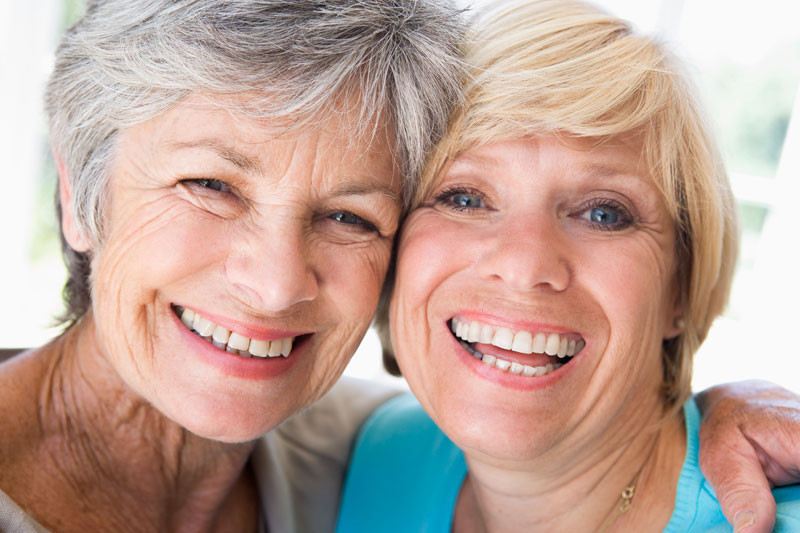The life expectancy of American women continues to rise because of factors such as better health care and nutrition, as well as self-awareness as women find out for themselves what they can do to enhance both. Women increasingly are living into their 80s and 90s, some even past the century mark. That presents new challenges, as older adults are often at greater risk of nutritional deficiencies, per The American Journal of Clinical Nutrition. Conceivably, the older an already elderly adult gets, the more pronounced their nutritional deficiencies become. Part of the problem is a gastrointestinal tract not operating as efficiently for the elderly, as well as possible complications related to chewing, swallowing, digesting and absorbing nutrients. Even ill-fitting dentures or lesions in the oral cavity can present obstacles. Women have a greater life expectancy than men, on the order of an extra seven or eight years. What does that mean? For one thing, it means that women are more likely to have more disability than younger women when it comes to those extra years of old age. That in turn boosts the risk of a sedentary lifestyle and therefore obesity, with proper nutritional consumption suffering as a consequence.
Nutrients Needed Especially for Older Women
Nutrients needed by the body include potassium, calcium, vitamin D, vitamin B-12, minerals and dietary fiber (per choosemyplate.gov). None are likely to be found in abundance in the diets of older women who are at an age where careful, balanced-meal preparation has given way to easy-to-make meals and a preference for comfort food over nutritionally healthy food choices. At a time in someone's life – say, 65 and over – when caloric needs start to decrease, more of some key nutrients might be advisable, even necessary. Following are some of those nutritional needs for older women:- Protein. The need for protein increases as a woman ages – this is to equip her to meet an increased demand to heal wounds, fight infection and fix fractures, per ajcn.nutrition.org. Good protein sources include chicken, fish, beans and dairy products, with a goal of 46 grams a day.
- Fiber. Women over the age of 70 should shoot for 22 grams of fiber a day to help. Fruits and vegetables are excellent sources of dietary fiber, as are beans, nuts, berries and bran cereal. Note that all of those make handy snack foods. Enjoy.
- Vitamin C. A Vitamin C deficiency has been linked to illness, hospitalization and institutionalization of elderly women. For smokers, double the Recommended Dietary Allowance (RDA) of vitamin C that may be needed to maintain proper tissue levels. Other areas in which Vitamin C can be of assistance to seniors are for collagen production for making new skin tissue and to heal wounds, and for the maintenance of vascular integrity. Known Vitamin C sources include oranges, red peppers, kale, brussels sprouts, broccoli and strawberries, per draxe.com, as well as dietary supplements.
- Vitamin D. It plays a significant role in women's health on two levels – playing a role in bone health as well as in immune function. Sources include exposure to the sun's rays, fatty fish and fortified dairy products such as milk.
- Calcium. This is another essential nutrient found in inadequate amounts in many older women. Its presence in the body in sufficient amounts has been found to lower the risk of such chronic conditions as osteoporosis and hypertension (high blood pressure).
- Iron. An insufficient amount of it could result in anemia, which has been linked to bleeding in the gastrointestinal tract and a condition known as restless legs syndrome. Foods rich in iron include red meat, poultry, seafood, beans, peas and dried fruit (such as raisins and apricots), per mayoclinic.com.
- Zinc. Zinc is needed for the maintenance of a strong immune system, per nutritionist-resource.org.uk, and can be found in meat, shellfish, wholemeal bread and pulses.

